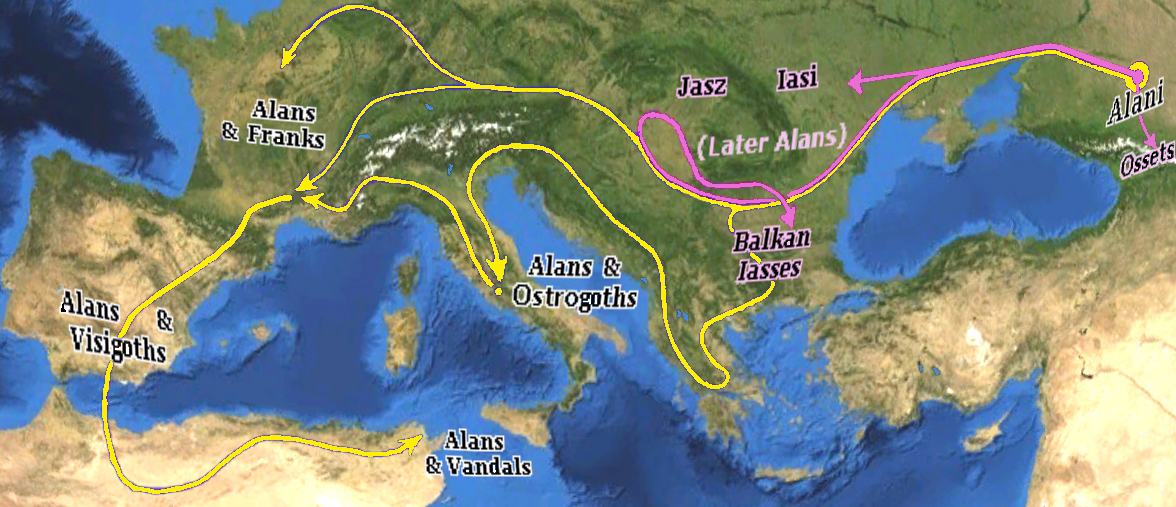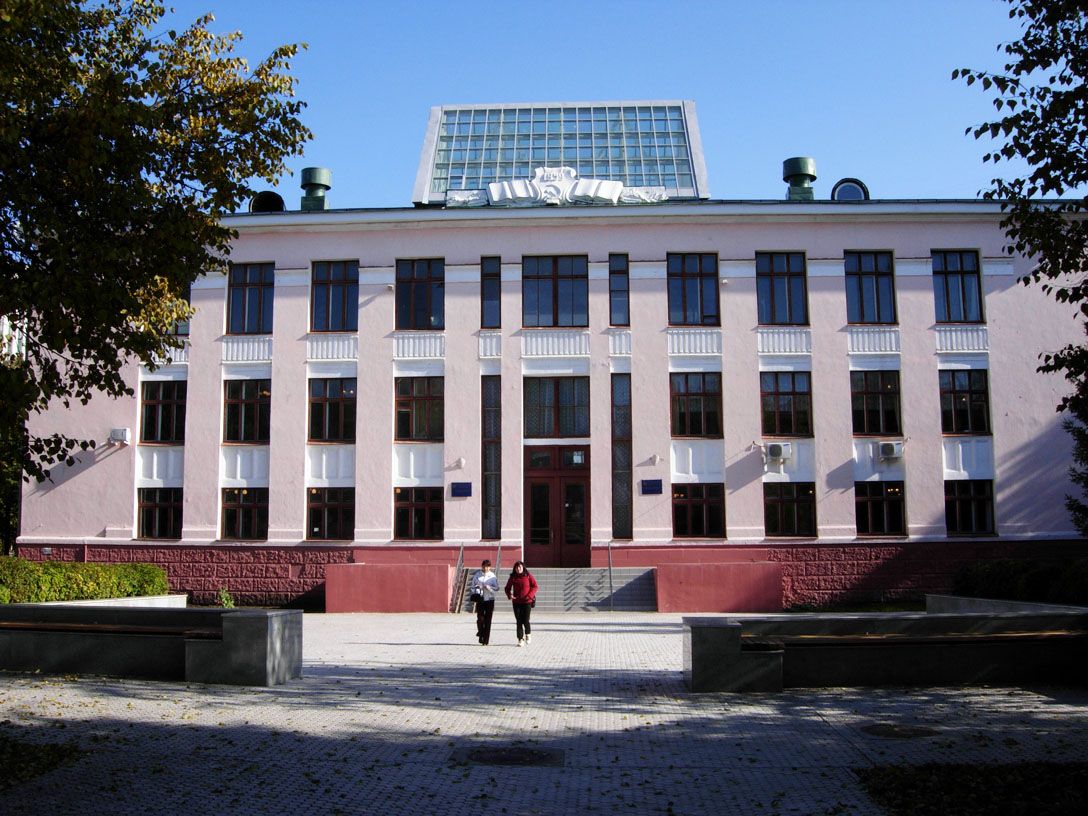|
Ras Tarkhan
Ras Tarkhan was a Khazar general of the mid 8th century, sometimes referred to as ''As Tarkhan'', who led an invasion of Abbasid territories in Armenia, Caucasian Albania and northwestern Iran, Persia. He defeated the Arabs in the Battle of Shirvan and ensur the dominance of the Khazar Khanate in the Caucasus, and this battle was the end of the Khazar-Arab Wars. Scholars have debated over whether Ras Tarkhan is a name or a title. ''As Tarkhan'', used as a title, would mean "general of the Alans", possibly indicating a role as commander of Alan mercenaries or auxiliaries. According to Zeki Validi Togan and Peter Benjamin Golden, Ras Tarkhan came from a clan called Khatiriltber. {{DEFAULTSORT:Tarkhan, Ras Khazar generals 8th-century people People of the Arab–Khazar wars ... [...More Info...] [...Related Items...] OR: [Wikipedia] [Google] [Baidu] |
Khazar
The Khazars ; he, כּוּזָרִים, Kūzārīm; la, Gazari, or ; zh, 突厥曷薩 ; 突厥可薩 ''Tūjué Kěsà'', () were a semi-nomadic Turkic people that in the late 6th-century CE established a major commercial empire covering the southeastern section of modern European Russia, southern Ukraine, Crimea, and Kazakhstan. They created what for its duration was the most powerful polity to emerge from the break-up of the Western Turkic Khaganate. Astride a major artery of commerce between Eastern Europe and Western Asia, Southwestern Asia, Khazaria became one of the foremost trading empires of the Early Middle Ages, early medieval world, commanding the western March (territory), marches of the Silk Road and playing a key commercial role as a crossroad between China, the Middle East and Kievan Rus'. For some three centuries (c. 650–965) the Khazars dominated the vast area extending from the Volga-Don steppes to the eastern Crimea and the northern Caucasus. Khazari ... [...More Info...] [...Related Items...] OR: [Wikipedia] [Google] [Baidu] |
Abbasid
The Abbasid Caliphate ( or ; ar, الْخِلَافَةُ الْعَبَّاسِيَّة, ') was the third caliphate to succeed the Islamic prophet Muhammad. It was founded by a dynasty descended from Muhammad's uncle, Abbas ibn Abdul-Muttalib (566–653 CE), from whom the dynasty takes its name. They ruled as caliphs for most of the caliphate from their capital in Baghdad in modern-day Iraq, after having overthrown the Umayyad Caliphate in the Abbasid Revolution of 750 CE (132 anno Hegirae, AH). The Abbasid Caliphate first centered its government in Kufa, modern-day Iraq, but in 762 the caliph Al-Mansur founded the city of Baghdad, near the ancient Babylonian Empire, Babylonian capital city of Babylon. Baghdad became the center of Science in the medieval Islamic world, science, Islamic culture, culture and List of inventions in the medieval Islamic world, invention in what became known as the Islamic Golden Age, Golden Age of Islam. This, in addition to housing several ke ... [...More Info...] [...Related Items...] OR: [Wikipedia] [Google] [Baidu] |
Armenia
Armenia (), , group=pron officially the Republic of Armenia,, is a landlocked country in the Armenian Highlands of Western Asia.The UNbr>classification of world regions places Armenia in Western Asia; the CIA World Factbook , , and ''Oxford Reference Online'' also place Armenia in Asia. It is a part of the Caucasus region; and is bordered by Turkey to the west, Georgia to the north, the Lachin corridor (under a Russian peacekeeping force) and Azerbaijan to the east, and Iran and the Azerbaijani exclave of Nakhchivan to the south. Yerevan is the capital, largest city and the financial center. Armenia is a unitary, multi-party, democratic nation-state with an ancient cultural heritage. The first Armenian state of Urartu was established in 860 BC, and by the 6th century BC it was replaced by the Satrapy of Armenia. The Kingdom of Armenia reached its height under Tigranes the Great in the 1st century BC and in the year 301 became the first state in the world to adopt ... [...More Info...] [...Related Items...] OR: [Wikipedia] [Google] [Baidu] |
Caucasian Albania
Caucasian Albania is a modern exonym for a former state located in ancient times in the Caucasus: mostly in what is now Azerbaijan (where both of its capitals were located). The modern endonyms for the area are ''Aghwank'' and ''Aluank'', among the Udi people, who regard themselves as descended from the inhabitants of Caucasian Albania. However, its original endonym is unknown.Robert H. Hewsen. "Ethno-History and the Armenian Influence upon the Caucasian Albanians", in: Samuelian, Thomas J. (Ed.), ''Classical Armenian Culture. Influences and Creativity''. Chicago: 1982, pp. 27-40. Bosworth, Clifford E.br>Arran ''Encyclopædia Iranica''. The name Albania is derived from the Ancient Greek name and Latin .James Stuart Olson. An Ethnohistorical Dictionary of the Russian and Soviet Empires. The prefix "Caucasian" is used purely to avoid confusion with modern Albania of the Balkans, which has no known geographical or historical connections to Caucasian Albania. Little is known of th ... [...More Info...] [...Related Items...] OR: [Wikipedia] [Google] [Baidu] |
Iran
Iran, officially the Islamic Republic of Iran, and also called Persia, is a country located in Western Asia. It is bordered by Iraq and Turkey to the west, by Azerbaijan and Armenia to the northwest, by the Caspian Sea and Turkmenistan to the north, by Afghanistan and Pakistan to the east, and by the Gulf of Oman and the Persian Gulf to the south. It covers an area of , making it the 17th-largest country. Iran has a population of 86 million, making it the 17th-most populous country in the world, and the second-largest in the Middle East. Its largest cities, in descending order, are the capital Tehran, Mashhad, Isfahan, Karaj, Shiraz, and Tabriz. The country is home to one of the world's oldest civilizations, beginning with the formation of the Elamite kingdoms in the fourth millennium BC. It was first unified by the Medes, an ancient Iranian people, in the seventh century BC, and reached its territorial height in the sixth century BC, when Cyrus the Great fo ... [...More Info...] [...Related Items...] OR: [Wikipedia] [Google] [Baidu] |
Battle Of Shirvan
A battle is an occurrence of combat in warfare between opposing military units of any number or size. A war usually consists of multiple battles. In general, a battle is a military engagement that is well defined in duration, area, and force commitment. An engagement with only limited commitment between the forces and without decisive results is sometimes called a skirmish. The word "battle" can also be used infrequently to refer to an entire operational campaign, although this usage greatly diverges from its conventional or customary meaning. Generally, the word "battle" is used for such campaigns if referring to a protracted combat encounter in which either one or both of the combatants had the same methods, resources, and strategic objectives throughout the encounter. Some prominent examples of this would be the Battle of the Atlantic, Battle of Britain, and Battle of Stalingrad, all in World War II. Wars and military campaigns are guided by military strategy, whereas bat ... [...More Info...] [...Related Items...] OR: [Wikipedia] [Google] [Baidu] |
Tarkhan
Tarkhan ( otk, 𐱃𐰺𐰴𐰣, Tarqan, mn, or ; fa, ترخان; ; ar , طرخان; alternative spellings ''Tarkan'', ''Tarkhaan'', ''Tarqan'', ''Tarchan'', ''Turxan'', ''Tarcan'', ''Turgan, Tárkány, Tarján'') is an ancient Central Asian title used by various Turkic peoples, Iranian peoples, and by the Hungarians and Mongols. Its use was common among the successors of the Mongol Empire. Etymology The origin of the word is not known. Various historians identify the word as either East Iranian ( Sogdian or Khotanese Saka) or Turkic. Although Richard N. Frye reports that the word "was probably foreign to Sogdian", Gerhard Doerfer points out that even in Turkic languages, its plural is not Turkic (sing. ''tarxan'' --> plur. ''tarxat''), suggesting a non-Turkic origin. L. Ligeti comes to the same conclusion, saying that "''tarxan'' and ''tegin'' rinceform the wholly un-Turkic plurals ''tarxat'' and ''tegit''" and that the word was unknown to medieval western Turkic langu ... [...More Info...] [...Related Items...] OR: [Wikipedia] [Google] [Baidu] |
Alans
The Alans (Latin: ''Alani'') were an ancient and medieval Iranian nomadic pastoral people of the North Caucasus – generally regarded as part of the Sarmatians, and possibly related to the Massagetae. Modern historians have connected the Alans with the Central Asian Yancai of Chinese sources and with the Aorsi of Roman sources. Having migrated westwards and becoming dominant among the Sarmatians on the Pontic–Caspian steppe, the Alans are mentioned by Roman sources in the . At that time they had settled the region north of the Black Sea and frequently raided the Parthian Empire and the Caucasian provinces of the Roman Empire. From the Goths broke their power on the Pontic Steppe. Upon the Hunnic defeat of the Goths on the Pontic Steppe around , many of the Alans migrated westwards along with various Germanic tribes. They crossed the Rhine in 406CE along with the Vandals and Suebi, settling in Orléans and Valence. Around 409 CE they joined the Vandals and Suebi in cro ... [...More Info...] [...Related Items...] OR: [Wikipedia] [Google] [Baidu] |
Zeki Validi Togan
Zeki Velidi Togan ( ba, Әхмәтзәки Әхмәтшаһ улы Вәлиди, Äxmätzäki Äxmätşah ulı Wälidi; russian: Ахмет-Заки Ахметшахович Валидов, tr, Ahmet Zeki Velidi Togan; 1890 – 1970 in Istanbul), was a Bashkir historian, Turkologist, and leader of the Bashkir revolutionary and liberation movement. Biography He was born in Kuzyanovo ( Bashkir: Көҙән) village of Sterlitamaksky Uyezd, Ufa Governorate (in present-day Ishimbaysky District, Bashkortostan). From 1912 to 1915 Velidi taught in the madrasa in Kazan (Qasímiä), and from 1915 to 1917, he was a member of bureau, supporting Muslim deputies at the State Duma. In 1917, he was elected to the Millät Mäclese, and with Şerif Manatov, he organized the Bashkir Shuro (Council). During the Bashkir Congress in Orenburg from December 1917, he declared autonomous Bashkiria. However, he was arrested 3 February 1918 by the Soviet forces. In April 1918 he managed to escape ... [...More Info...] [...Related Items...] OR: [Wikipedia] [Google] [Baidu] |
Peter Benjamin Golden
Peter Benjamin Golden (born 1941) is an American historian who is Professor Emeritus of History, Turkish and Middle Eastern Studies at Rutgers University. He has written many books and articles on Turkic and Central Asian Studies, such as ''An introduction to the history of the Turkic peoples''. Golden grew up in New York and attended Music & Art High School. He graduated from CUNY Queens College in 1963, before obtaining his M.A. and Ph.D. in History from Columbia University in 1968 and 1970, respectively. Golden also studied at the Dil ve Tarih – Coğrafya Fakültesi (School of Language and History – Geography) in Ankara (1967–1968). He taught at Rutgers University from 1969 until his retirement in 2012. He was Director of the Middle Eastern Studies Program (2008–2011) at Rutgers. He is an honorary member of the Türk Dil Kurumu and Kőrösi Csoma Society of Hungarian Orientalists and was a member of the School of Historical Studies at the Institute for Advanced Stu ... [...More Info...] [...Related Items...] OR: [Wikipedia] [Google] [Baidu] |
.jpg)
.jpg)


